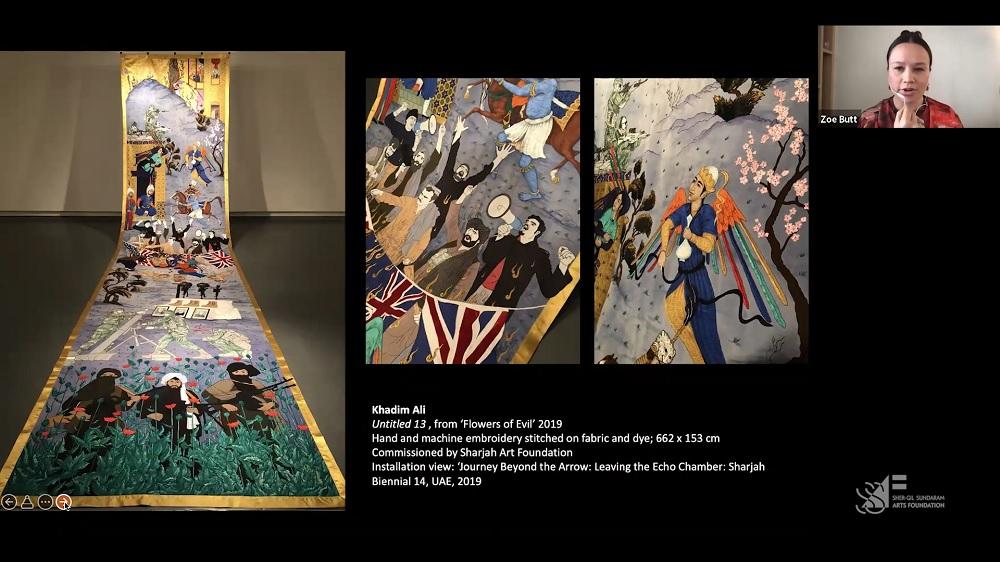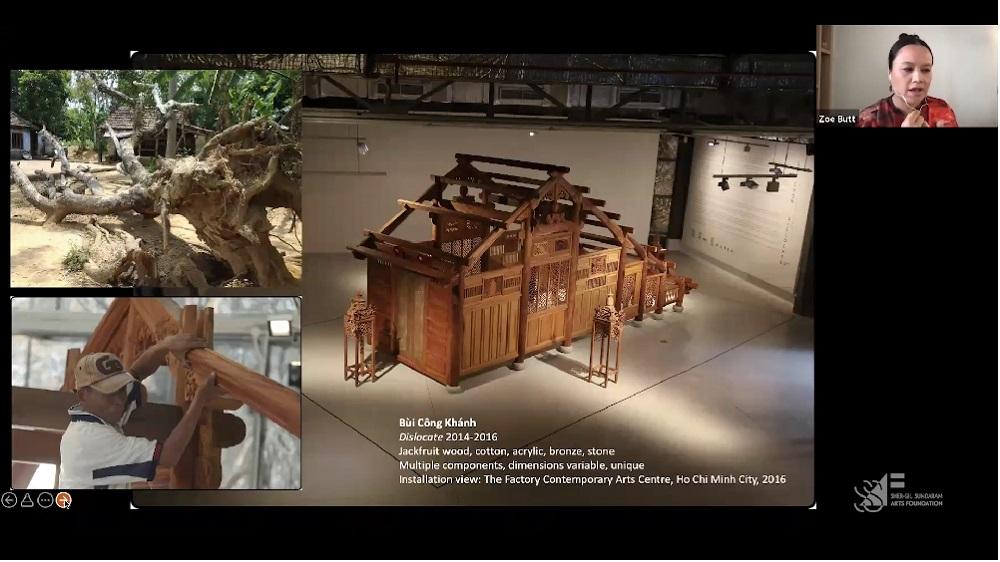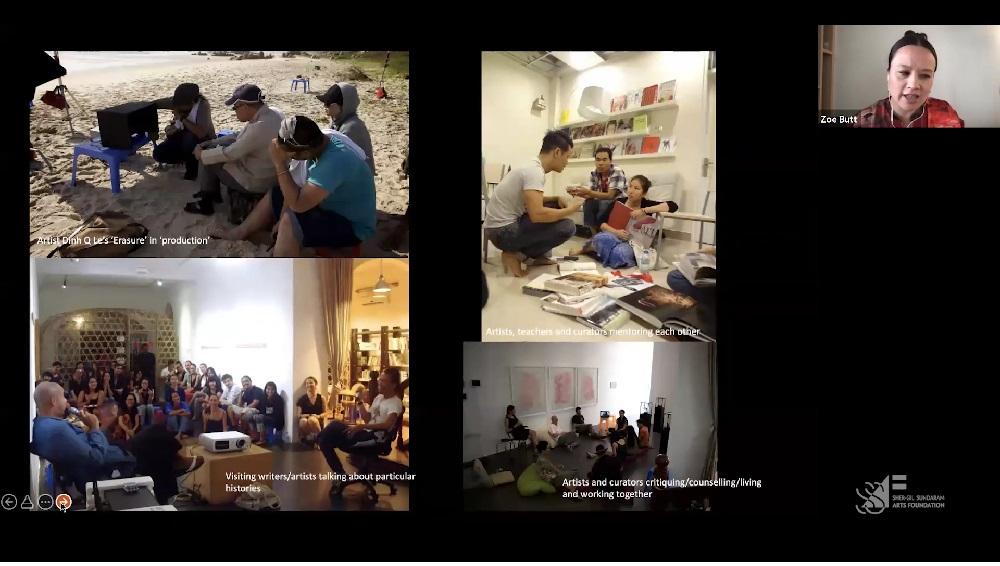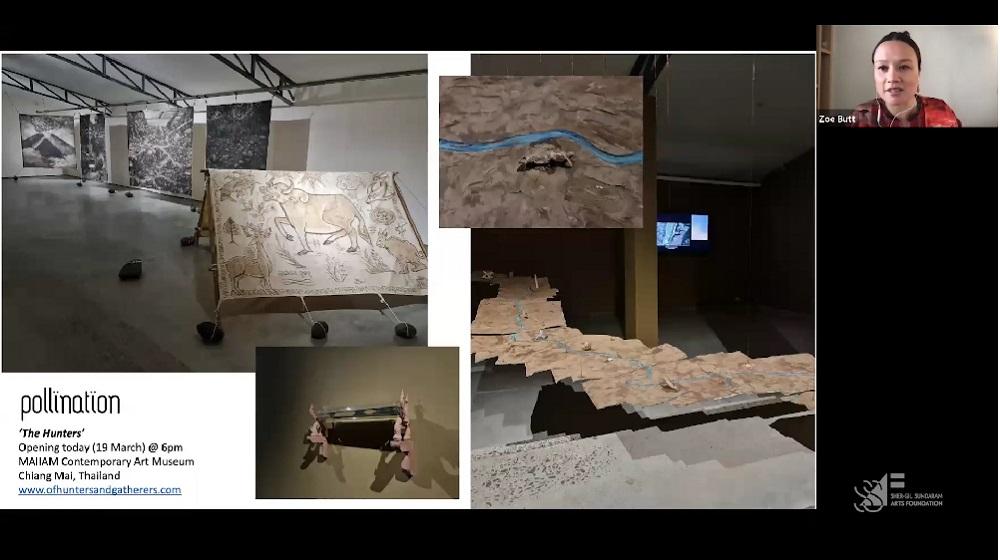Curating the (Asian) Contemporary: On the Second Tushar Joag Memorial Lecture delivered by Zoe Butt

Speaking at the second Tushar Joag Memorial Lecture held in March, 2022, Zoe Butt’s lecture presentation was titled “Finding mentors and confidantes within the slippage of what is visible or presumed absent”, and was chaired by Chaitanya Sambrani. She drew from her work as a curator and writer based out of Vietnam, a location that generates rich significance for her in understanding the cultural legacies of South East Asian art—a zone that is only conceptually separate from South Asia but otherwise intimately involved with its historical trajectory. Her work with several Vietnamese (and others) culture workers help reveal worlds that are often folded within the larger episodes of global history—focusing, in fact, on world-making as a conscious form of community engagement and artistic legacy-formation. She also addresses the challenges inherent in conceptualising broad artistic projects in Vietnam, which still remains deeply censorious of political artwork that aspire to tell stories different from the socialist-state narratives favoured by the country. Responses to such cultural caution cannot always be resolved by encouraging greater global partnerships either, namely through organisations like Alliance Francaise or the Goethe Institut, as they ultimately reproduce the greater-resourced imperial narratives of progress rather than the possibility of tracing more local histories (shared between Vietnam and Cambodia, for instance).

Butt takes off from the work of disparate artists she considers her “mentors”—such as Bui Cong Khanh, the Vietnamese sculptor; Kidlat Tahimik, the ground-breaking Filipino filmmaker; Khadim Ali, whose Flowers of Evil series has been described as an “inspirational artwork”, the kind of work that opens up a “dialogical window onto a historical consciousness”, and encourages an encounter with something that multiplies our understanding of a singular past. Very often, the spark must be located before a work is finished. In this, one of her strong curatorial habits is to respond to the unfolding work in time, and the context of its making, rather than embody a belated attempt to curate something post the event of its making.

She cites Sven Lindqvist’s Exterminate all the Brutes as a handbook that demonstrates how modern imperialism is intimately connected with the silences produced on behalf of colonised cultures in modern ethnography. Even as curatorial projects attempt to broach new forms of universalism within the worlds of South Asia, she hopes they will not lose their rich intertextuality with their own surrounding cultures.
The search for such difficult connections may not always allow being carried out through conventional works of history—a disciplinary activity that implies textual knowledge and established codes of inscription—but must branch out to oral memories that leave their traces in more complex registers of performance and gesture, not to mention the rich store of dreaming and storytelling that is rife in these pockets. Butt’s interventions, especially through the work Conscious Realities, demonstrates these ideas perfectly without diluting the risks entailed in such contingent practices of art-making and foregrounding of novel cultural hybrids.

All images from the SSAF’s Second Tushar Joag Memorial Lecture video, delivered by Zoe Butt. 2022.




